Co-Authored with Del White
Today, we are making a stop on our journey through Cisco’s #FutureofPublicSector series to explore the city of the future. This is no Tomorrowland or distant dream of what the world could look like, but a direct result of the cities and communities that we are creating and investing in today.
Cities and communities are the center of human life. They are the places where all walks of life intersect, where innovation is born, where we mold future generations, and where culture thrives. Life bustles in and out, ferried over bridges and highways, and funneled down streets and boulevards. Look deeper, and you’ll see the forces that come together to power these cities and communities. Those technologies and processes that power the cities and communities of today are speeding ahead, illuminating an inclusive, greener, safer, and livable future. Let’s take a look.
Our cities and communities will be designed for the people who live in them and the generations yet to come. They will enable us to build communities that move forward together and don’t leave anyone behind. Technology will secure our cities and communities, facilitate collaboration between people near and far, and reduce our collective environmental footprint. With 68% of the world population forecasted to live in cities and urban areas by 2050, the creation of the world they will live in starts today.
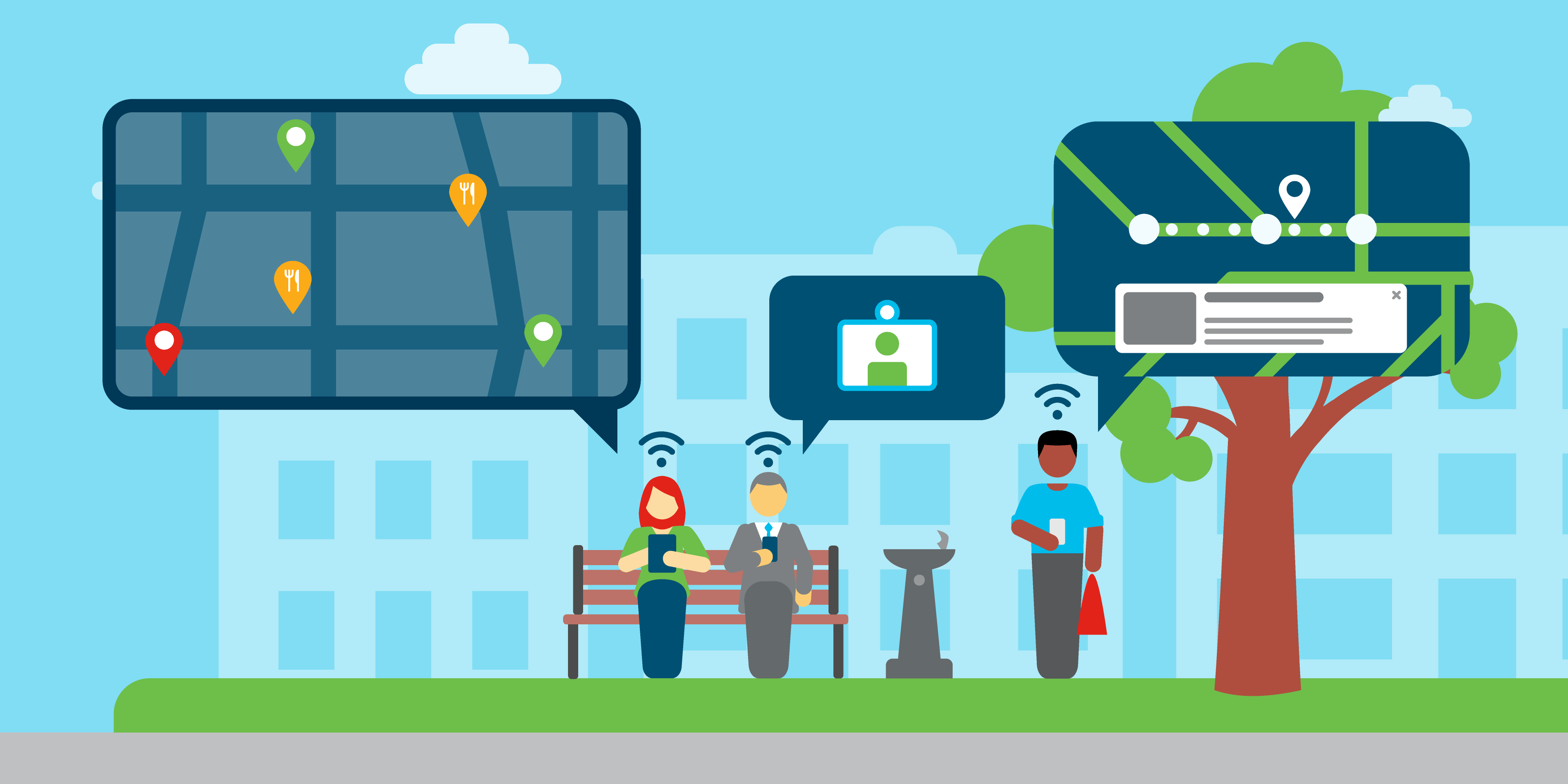
Designing for People
Globally, people are impacted every day by challenges spanning from economic disparity to hurdles in reaching education to restricted access to healthcare to public safety and data privacy concerns. By designing cities and communities with people in mind, the city of tomorrow will begin to address these long-faced challenges. People-centered design will pull the existing systems of the city together and take advantage of previously-unseen synergies between organizations. Collaboration tools and applications will open the lines of communication between governing bodies and their constituents. Data collection processes will be designed with privacy and secure transmission embedded in each step.
Connecting the Pink City
In Jaipur, a city built for tourists and citizens alike, city leaders hoped to drive improvements on both fronts: traveler safety and experience and resident quality of life. Jaipur enables smart Wi-Fi hotspots, supports interactive kiosks, builds safety into their city infrastructure, and continues to install sensors to monitor important aspects of city life like pollution and environmental conditions. Through people-centered design, the Jaipur Development Authority is successfully building a digital city for the future.
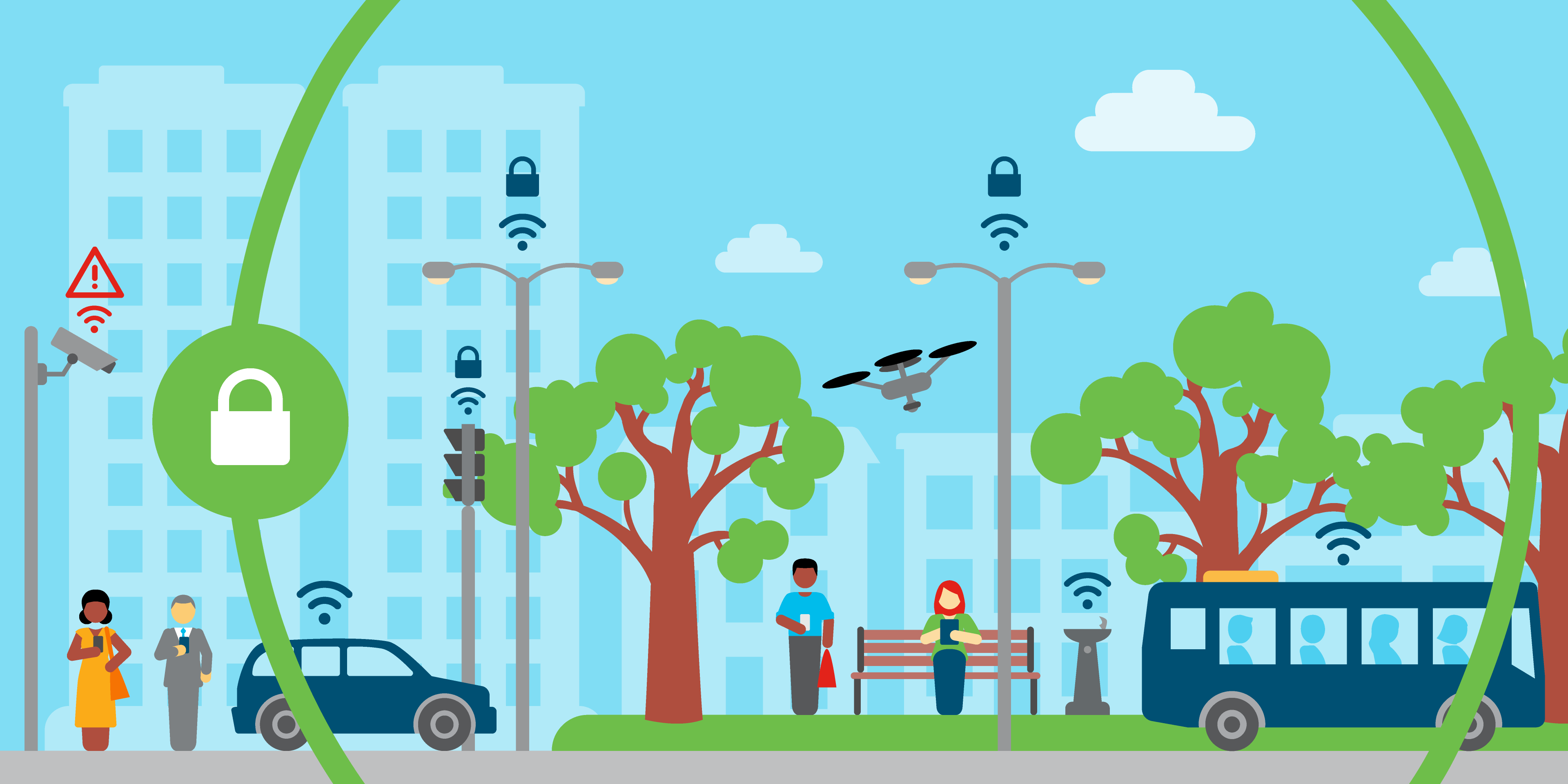
Building Sustainability and Resilience
Cities and communities exist to support the people that live, work, play, and learn in them. Cities must be resilient and prepared to address the evolving natural and human-made world around them. Cities and communities will provide a dynamic pulse on environmental conditions through the growing power of the Internet of Things. By better forecasting and preparing for disasters and incidents, we will be ready and able to productively bounce back from anything that might come our way.
The city of tomorrow will reduce waste in all forms. Smart Water solutions will help ensure that our communities have safe and equitable access to our world’s most precious resource. Light pollution dimming the stars and draining utilities funds? Smart lighting solutions will illuminate the way to savings, increase safety, and reduce carbon footprint.
Bringing Sustainability to Centerstage
In the race to be the world’s first carbon neutral capital, Copenhagen brought sustainability to the forefront of their city’s strategy. The Danish Outdoor Lighting Lab (DOLL) sources light, parking, waste, and other sensor solutions to drive continuous improvement in sustainability and citizen experience. Data from the DOLL allows Copenhagen to monitor carbon emissions, go straight to the source, and nip pollution in the bud.
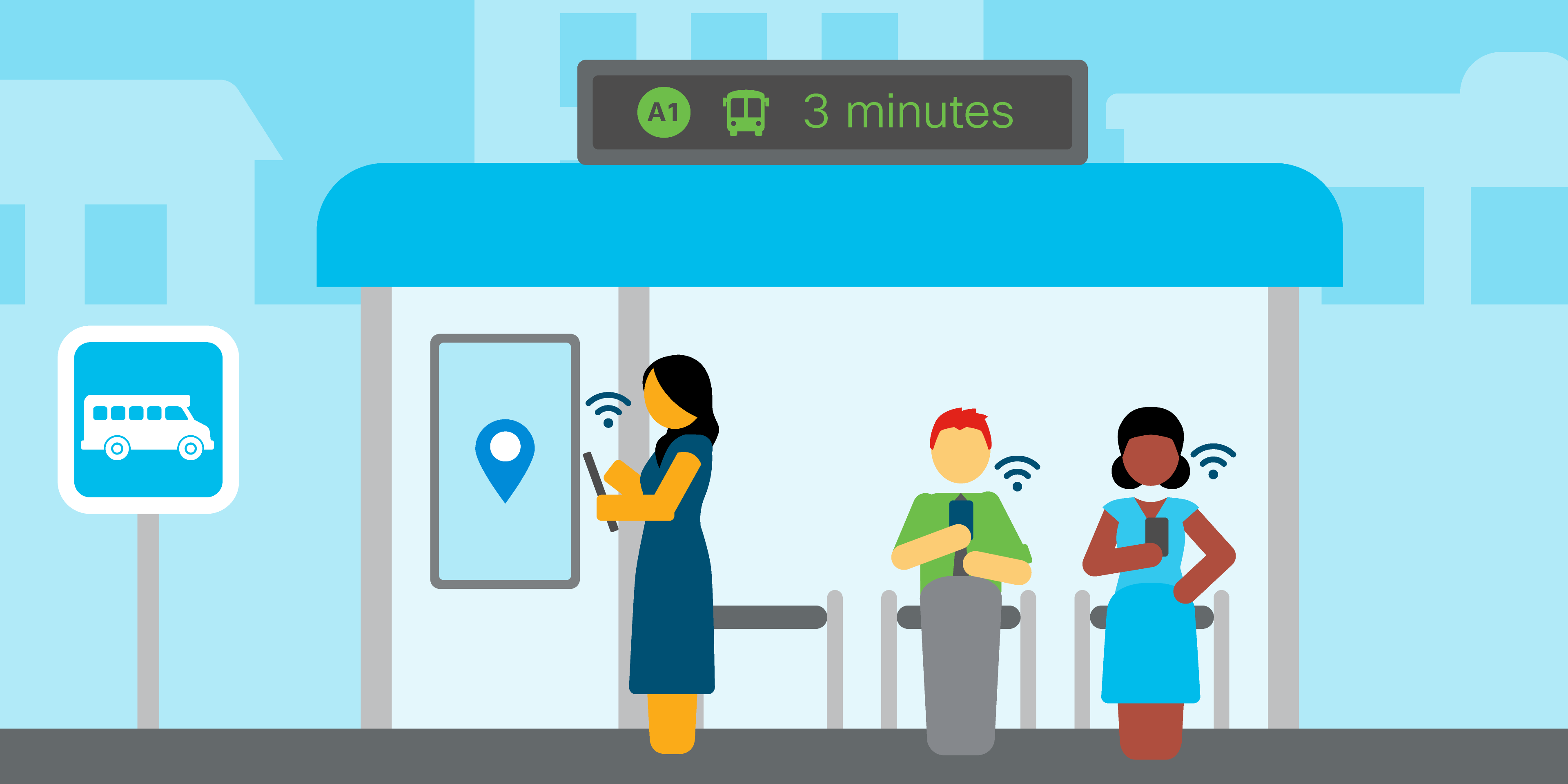
Making Technology Work for Everyone
Technology will facilitate faster decision-making and more agile processes. Collaboration tools mean employees will be empowered to make decisions on the move. By engaging residents on decision-making processes and empowering them to be involved in solving some of their communities’ most pressing challenges, cities can use technology to make their processes, programs, and projects even more human-centric. By providing services anywhere, anytime cities will stay relevant in an on-demand world. These digital initiatives will deepen and solidify the commitment of cities to its people. Edge networks in urban mobility initiatives will help ease traffic congestion, help all road users stay safe, and get people where they need to be efficiently and effectively.
Expanding Access
Mexico Contectado strives to guarantee access to broadband internet as a constitutional right. By widening access to Internet, this initiative breaks down barriers and increases opportunities for those who previously lacked access.
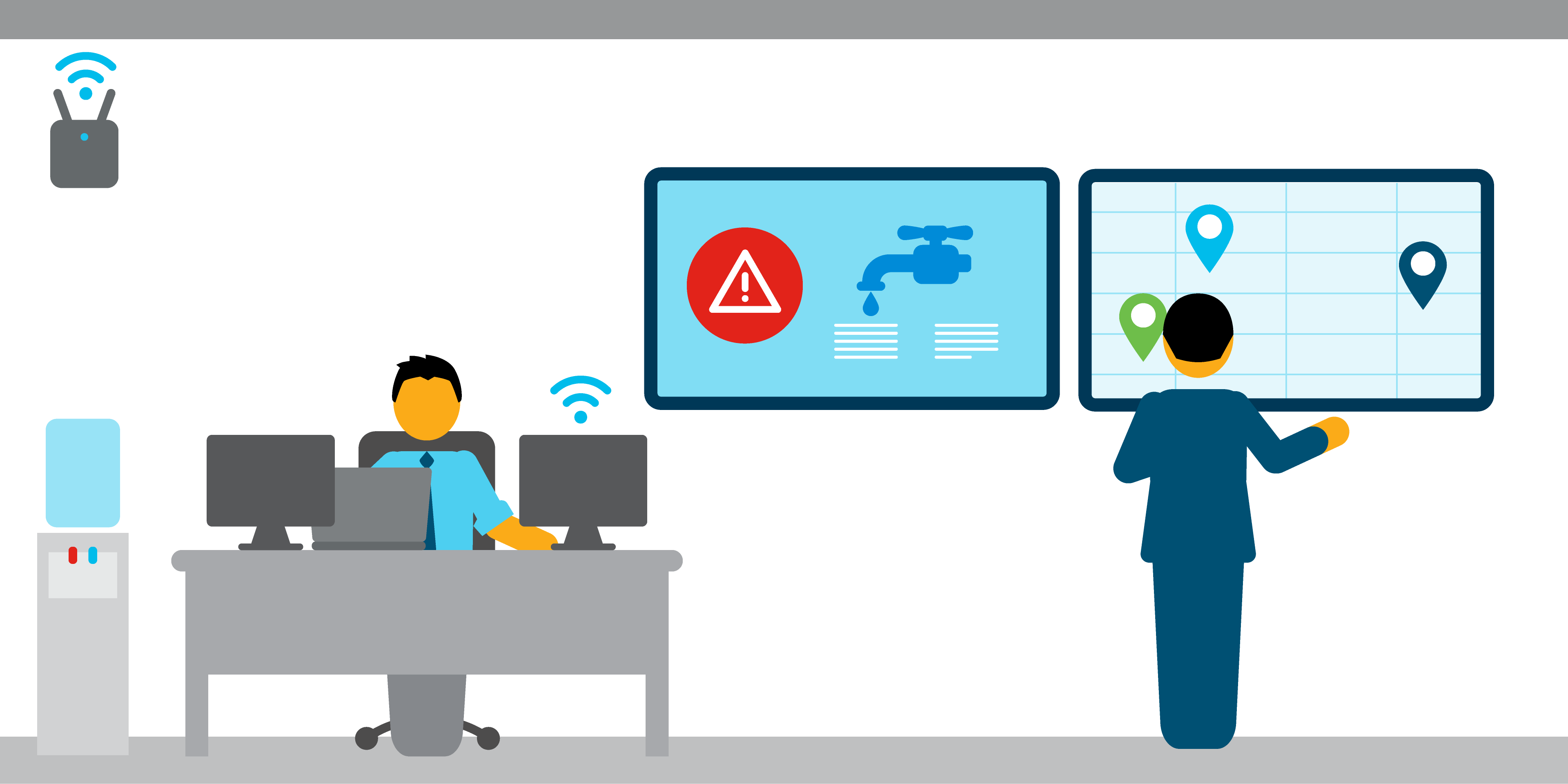
Growing More Intelligently
The city of tomorrow will promote growth, together. Educational initiatives that emphasize skills-based training will prepare learners for jobs we cannot imagine today. “Next-generation workers” will generate $1.1 trillion by 2024 as they utilize mobility, collaboration, and secure connectivity to deepen their knowledge and amplify the effectiveness in their roles. Cities and communities will continue to be centers of innovation that help move the world forward. Open data initiatives will help reveal previously unknown solutions to evolving challenges while promoting government transparency and accountability.
Smart Students and Smart Cities
By investing in an entrepreneurial ecosystem through partnerships with educational institutions, France and Cisco are preparing students to excel in a world in transition. Key to this initiative are collaboration technologies and the availability of big data to drive innovation.
The Bridge to Possible
Between envisioning a better community and creating one, there’s a bridge.
By focusing on people as we build tomorrow, we strive to better address their needs and use technology to improve lives and keep our countries, communities, and schools safe, secure, and connected.
Join the conversation! Share your thoughts below and watch out for the next installment of our #FutureofPublicSector blog series on the Future of Utilities.





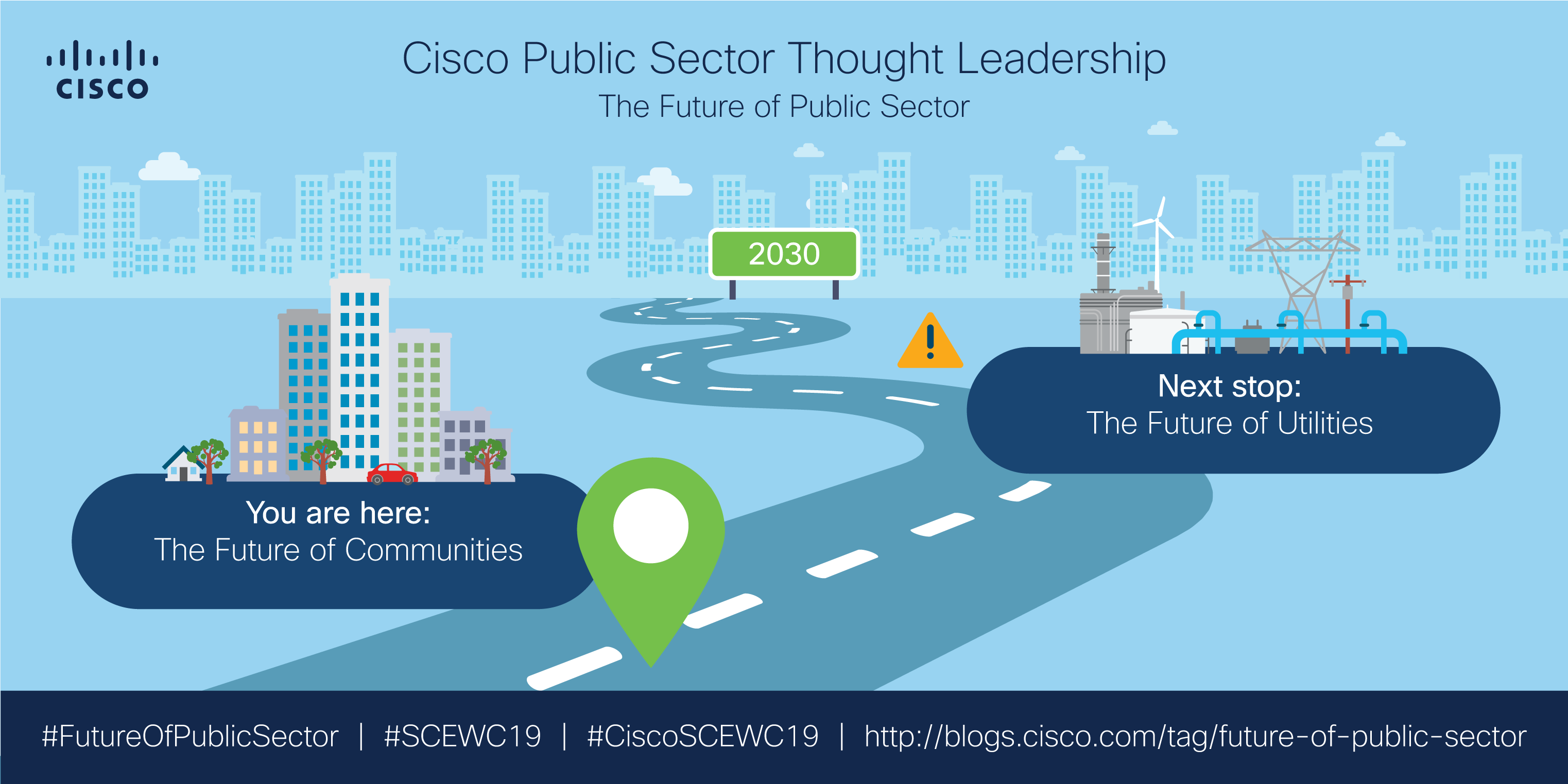

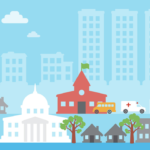
CONNECT WITH US